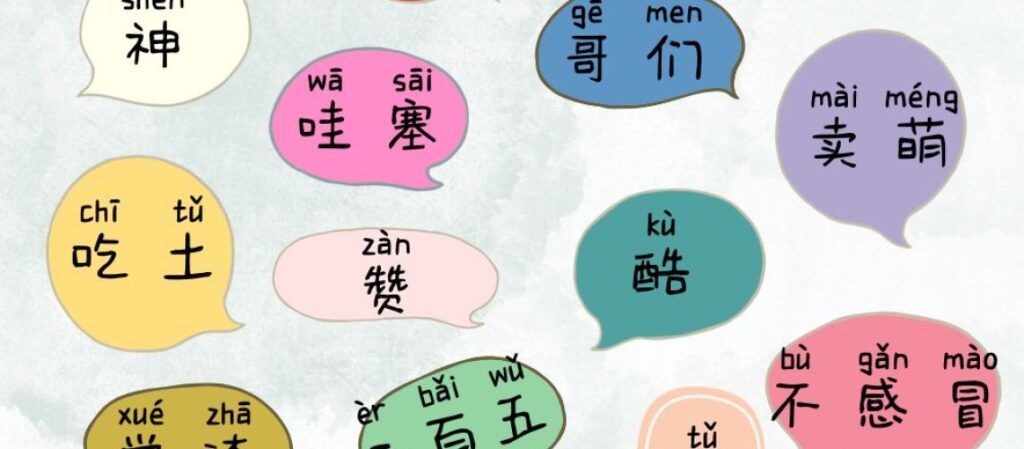Learn Mandarin
The Complete Beginner’s Guide to Learning Mandarin FAST
This is a step-by-step guide that was created with one goal in mind: To help complete beginners learn how to speak Mandarin fast
- Learn Mandarin Chinese Specialization
- Advance your subject-matter expertise
- Learn in-demand skills from university and industry experts
- Master a subject or tool with hands-on projects
- Develop a deep understanding of key concepts
- Earn a career certificate from Shanghai Jiao Tong University
Mandarin Chinese 1:
Chinese for Beginners
What you’ll learn
Mandarin Chinese 1: Chinese for beginners is a beginner’s course of Mandarin Chinese. It uses lectures, short plays, interactive exercises and cultural tips to help learners build a fundamental capability of oral Chinese in real-life situations. At the end of the 5-week course, the learners will reach the following proficiency:
♦ 150 words
♦ 20 language points
♦ handling 5 real-life situations
This is a beginners’ course, therefore no prerequisite is required


Mandarin Chinese 2:
What you’ll learn
Mandarin Chinese 2: Chinese for beginners is a beginner’s course of Mandarin Chinese in continuation of Mandarin Chinese 1: Chinese for beginners. It uses lectures, short plays, interactive exercises and cultural tips to help learners build a fundamental capability of oral Chinese in real-life situations. At the end of the 5-lesson course, the learners will reach the following proficiency:
♦ 300 words
♦ 40 language points
♦ handling 10 real-life situations
Completing “Mandarin Chinese 1: Chinese for beginners” or having attended Chinese courses of any types for at least 15 hours is the prerequisite.
Mandarin Chinese 3:
What you’ll learn
Mandarin Chinese 3: It is a course of Mandarin Chinese in continuation of Mandarin Chinese 2: Chinese for beginners. It uses lectures, short plays, interactive exercises and cultural tips to help learners build a fundamental capability of oral Chinese in real-life situations. At the end of the 5-lesson course, the learners will reach the following proficiency:
♦ 500 words
♦ 60 language points
♦ handling 15 real-life situations.
Completing “Learn Mandarin Chinese 2: Chinese for beginners” or having attended Chinese courses of any types for at least 30 hours is the prerequisite.


Learn Mandarin Chinese: Capstone Project
What you’ll learn
Learn Mandarin Chinese: Capstone Project is a beginner’s course of Mandarin Chinese in continuation of Mandarin Chinese 3
Chinese for Beginners. In this course, learners are required to complete a few tasks of using Chinese languages in simulated real life situations. Some guidance on taking and passing HSK (Chinese proficiency test) will also be provided. By completing this course, the learners will finish the learning of the whole series and be standing at the threshold of intermediate Chinese proficiency.
Common Chinese Slang Words

Here is a list of some common Chinese slang words in the spoken language. Many of them have been around for some time.
1. 牛 (niú) – “awesome”
Explanation: 牛 refers to “cow”. It is interesting that the meaning changes into “awesome” or “amazing” as a slang word. It is used to describe something impressive.
Sample sentence:
他的表演真牛,大家都很喜欢。(His performance is awesome, everyone loves it.)
This word is used to express excitement and admiration in a more casual and contemporary manner, helping people connect with each other.
2. 哇塞 (wā sāi) – “wow”
Explanation: This interjection expresses surprise or amazement.
Sample sentence:
哇塞,这个游乐园好漂亮!(Wow, this amusement park is so beautiful!)
This slang helps convey surprise and enthusiasm naturally.
3. 酷 (kù) – “cool”
Explanation: 酷 means “ruthless”. Because its pronunciation is close to “cool”, people use it to describe something trendy or impressive.
Sample sentence:
你新买的鞋子真酷,我也想买一双。(Your new shoes are so cool, I want to buy a pair too.)
This term enables students to express approval or admiration for something fashionable or impressive. It helps enhance their ability to engage in current trends and discussions.
4. 哥们 (gē men) – “buddy”
Explanation: It is a casual term for “buddy” or “bro.”
Sample sentence:
我们是好哥们,一起经历了很多事情。(We are good buddies and have been through a lot together.)
By using this word, it helps foster friendly relationships, connect with classmates.
5. 卖萌 (mài méng) – “to act cute”
Explanation: 卖 is “to sell” and 萌 is “cute, adorable”. This phrase refers to the act of intentionally behaving in a cute or adorable manner.
Sample sentence:
她喜欢卖萌,经常做一些可爱的表情。(She likes to act cute and often makes adorable facial expressions.)
Students can use this phrase to playfully interact with others and express their affection or playful side, encouraging a lighthearted atmosphere in conversations.
6. 赞 (zàn) – “awesome”
Explanation: 赞 is “thumb up”. As a slang, it means “awesome” or “great” and is used to express admiration or approval.
Sample sentence:
你的画画技术真赞,我很喜欢。(Your drawing skills are awesome, I really like them.)
People can use this expression to show admiration and support, and build positive connections.
7. 亲 (qīn) – “dear”
Explanation: 亲 means “to kiss, intimate, close”. It is an affectionate term used to address someone dear or close. Sample sentence:
亲,你今天过得怎么样?(Dear, how was your day today?)
This term allows speakers to address others in an affectionate and endearing way, promoting warmth and closeness in relationships.
8. 神 (shén) – “godlike”
Explanation: This word is used to describe someone who is exceptionally skilled or talented.
Sample sentence:
他的跳舞技巧真是神,每个动作都完美无瑕。(His dancing skills are godlike, every move is flawless.)
People can use this term to acknowledge exceptional talent or skills, encouraging appreciation for achievements and inspiring motivation.
9. 土 (tǔ) – “uncool”
Explanation: 土 is “dirt”. As a slang, it describes something or someone who is not trendy or lacks style.
Sample sentence:
这个衣服太土了,现在都不流行了。(This outfit is uncool, it’s not trendy anymore.)
Being aware of this slang word helps people understand social dynamics and trends, enabling them to participate in conversations about what is considered stylish or uncool.
10. 不感冒 (bù gǎn mào) – “not interested”
Explanation: Literally, 不 is “not” and 感冒 is “cold”. When used a slang word, its meaning changes from “not cold” into “not interested” or “not keen on.”
Sample sentence:
我对那个电影不感冒,不想去看。(I’m not interested in that movie, I don’t want to go see it.)
This phrase allows students to express disinterest or lack of enthusiasm in a more colloquial and relatable manner.
11. 算了 (suàn le) – “forget it”
Explanation: It is used to suggest dropping or giving up on something.
Sample sentence:
别再争论了,算了吧。(Stop arguing, let’s forget it.)
We can use this expression to suggest giving up or dropping a topic. It helps navigate disagreements or avoid unnecessary conflicts.
12. 学霸 (xué bà) – “study genius”
Explanation: This term refers to someone who excels academically or is a top student.
Sample sentence:
他是我们班的学霸,每次考试都是第一名。(He is the study genius of our class, always getting the top score in exams.)
Understanding this term empowers students to acknowledge and appreciate academic excellence, thus fostering a culture of respect for learning and achievements.
13. 学渣 (xué zhā) – “study slacker”
Explanation: We often use this term to describe someone who struggles academically or is not good at studying.
Sample sentence:
他数学成绩太差了,完全是个学渣。(His math grades are very poor; he’s a complete study slacker.)
Understanding this term allows students to recognize and empathize with different academic abilities, further fostering a supportive and inclusive learning environment. Additionally, it helps students navigate discussions about academic performance and challenges, promoting empathy and understanding among peers.
14. 你行你上 (nǐ xíng nǐ shàng) – “if you can, do it”
Explanation: It is a daring challenge or encouragement to someone.
Sample sentence:
你觉得简单吗?那你行你上啊!(Do you think it’s easy? If you can, then go ahead and do it!)
This phrase encourages students to embrace challenges and take action.
15. 二百五 (èr bǎi wǔ) – “stupid”
Explanation: 二百五 is a number – two hundred fifty. We use this slang term to describe someone as silly or not smart.
Sample sentence:
别听他的,他就是个二百五。(Don’t listen to him, he’s just a stupid person.)
Although it carries a negative connotation, knowing this slang term helps understand informal language use in colloquial conversations.
16. 阿猫阿狗 (ā māo ā gǒu) – “random people”
Explanation: 猫 is “cat”. 狗 is “dog”. 阿猫阿狗 (“a cat and a dog”) becomes a slang word referring to random or unknown people without specific identities.
Sample sentence:
这个地方到处都是阿猫啊狗的,我都不认识。(There are random people everywhere in this place, I don’t know anyone.)
Being familiar with this phrase allows students to grasp colloquial expressions for referring to unfamiliar or anonymous individuals, therefore enhancing their comprehension of everyday interactions.
17. 去你的 (qù nǐ de) – “go away”
Explanation: It is an impolite expression to tell someone to go away or leave.
Sample sentence:
我不想跟你说话了,你可以去你的了。(I don’t want to talk to you anymore, you can go away.)
While it’s important to use polite language, understanding this expression helps students recognize impolite or rude language, promoting respectful communication.
18. 没门 (méi mén) – “no way”
Explanation: 没 is “have none” 门 means “door”. 没门 “Having no door” becomes the slang word meaning “no way” or “impossible.”
Sample sentence:
你想叫他帮忙?没门,他从来不会帮别人的忙。(You want him to help? No way, he never helps anyone.)
Knowing this phrase equips Chinese learners with a colloquial way to express disbelief naturally and respond to impossible situations.
19. 吃土 (chī tǔ) – “to be broke”
Explanation: Literally 吃土 is “to eat dirt”. This slang phrase means to have no money or to be financially struggling.
Sample sentence: 这个月花太多了,现在吃土了。(I spent too much this month, and now I’m broke.)
Understanding this slang phrase helps comprehend financial struggles. It promotes empathy and awareness of different socioeconomic circumstances.
20. 94 (jiǔ sì) / 就是 (jiù shì)
Explanation: 94/ 就是 is a slang term derived from internet culture in China. “94” (jiǔ sì nine four) is a homophone for “就是” (jiù shì), which means “exactly” or “that’s right.”
Sample sentence:
他的观点非常准确,94 !(His viewpoint is very accurate, that’s right!)
You can often see 94 in internet forums or social media platforms. Learning this slang helps students connect with online communities and understand the nuances of contemporary Chinese internet culture.
Learning slang Chinese words can not only enrich the understanding of the Chinese language and culture, but also enhance the ability to communicate with native speakers. By familiarizing with these 20 slang words, Chinese learners can connect more effectively in everyday conversations.



